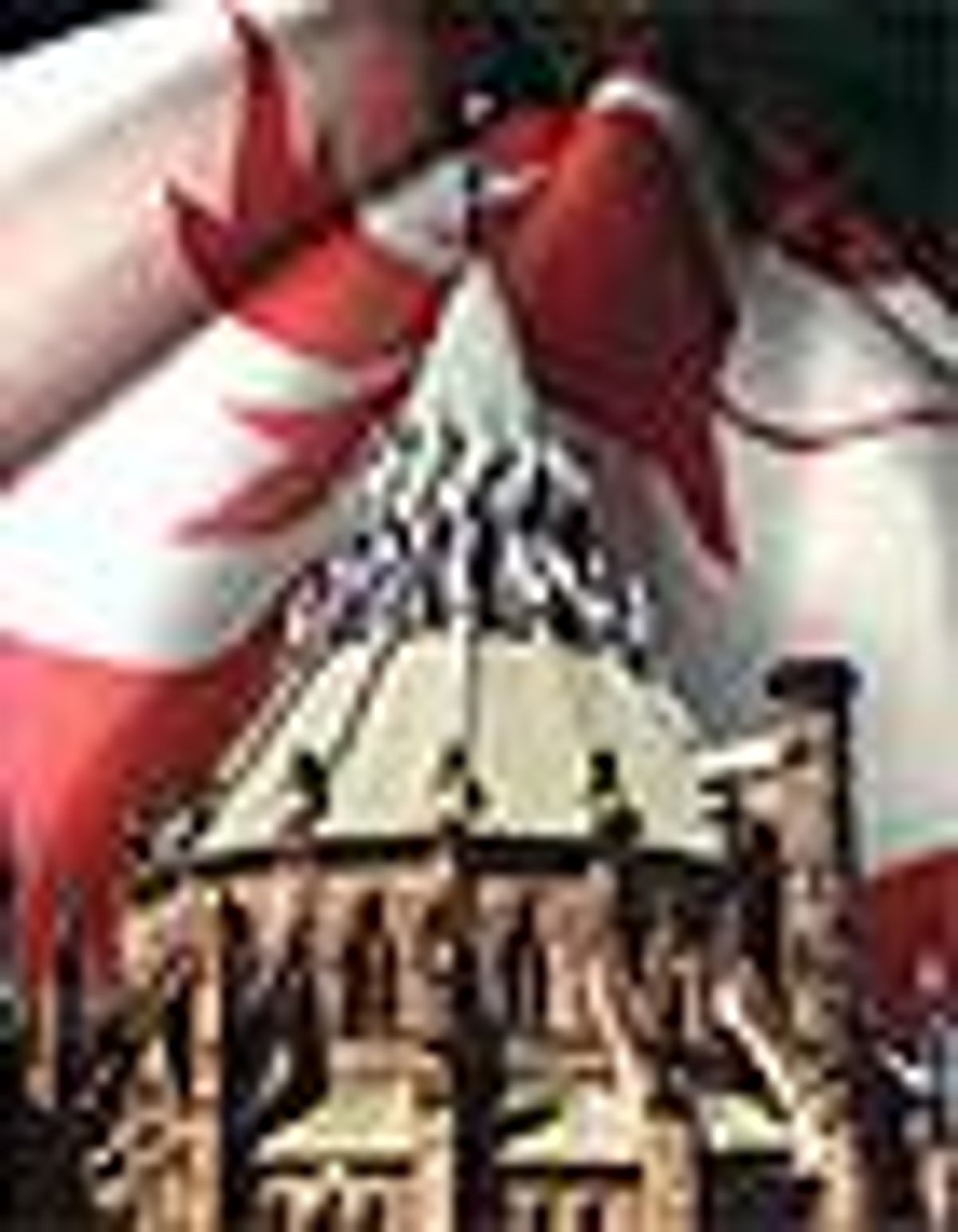Antigay lawmaker
Stephen Harper and his Conservative Party won national
elections Monday and ended 13 years of Liberal rule, a
victory expected to move Canada rightward on social
and economic issues and lead to improved ties with the
United States. The Conservatives' winning margin was
too narrow to avoid ruling with a minority government, a
situation that will make it difficult to get
legislation through a divided House of Commons.
The triumph for the Conservatives came with many
Canadians weary of the broken promises and corruption
scandals under the Liberal Party, making them willing
to give Harper a chance to govern despite concerns that some
of his social views are extreme.
"Tonight, friends, our great country has voted
for change, and Canadians have asked our party to take
the lead in delivering that change," Harper told some
2,000 cheering supporters at his campaign headquarters
in Calgary.
Relations with the Bush administration will
likely improve under Harper, as his ideology runs
along the same lines as that of many U.S. Republicans.
With nearly all votes counted in the race for
the 308-seat House, officials results showed
Conservatives with 123 seats, Liberals with 103, Bloc
Quebecois with 50, New Democratic Party with 28, and one
seat to an Independent. Three seats still haven't been determined.
Prime Minister Paul Martin conceded defeat and
said he would step down as head of the party, though
he plans to remain in parliament to represent the
Montreal seat he won again. It was an unusual move to do
both on the same night, but Martin appeared upbeat and
eager to continue to fight the Conservatives from the
opposition benches of the House. "I have just called
Stephen Harper and I've offered him my congratulations,"
Martin told a subdued crowd at his headquarters in Montreal.
"We differ on many things, but we all share a belief
in the potential and the progress of Canada."
The Conservative victory seemed likely
to shift the traditionally liberal country to the
right on socioeconomic issues such as health care,
taxation, abortion, and same-sex marriage. Some Canadians
have expressed reservations about Harper's views
opposing abortion and marriage equality.
Martin, 67, had trumpeted eight consecutive
budget surpluses and sought to paint Harper as a
right-winger posing as a moderate to woo mainstream
voters. He claimed Harper supports the war in Iraq, which
most Canadians oppose, and would try to outlaw
abortion and same-sex marriage.
Harper denied those claims and said Sunday that
Martin had failed to swing voters against him.
"Canadians can disagree, but it takes a lot to get
Canadians to intensely hate something or hate somebody. And
it usually involves hockey," Harper quipped. (AP)


















































































